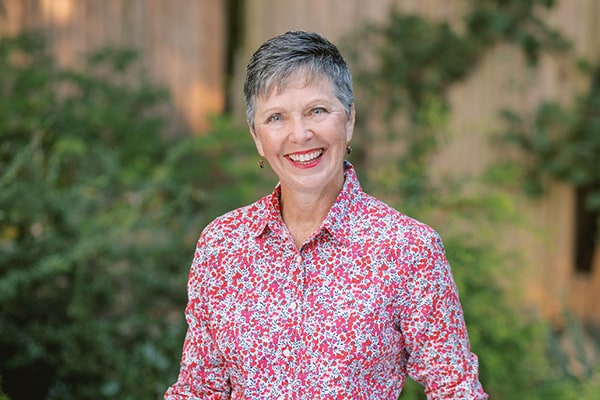But I do know that I love you
It is not surprising when my feed skews towards biology and the nature of love. Writer, photographer, feminist, Deborah Copaken ended the year sharing her experience of “falling in love” in her subscriber newsletter called “Lady Parts.” The biology of love is where every hot connection begins. Nature compels us to connect. Fueled by the intoxicating cocktail of oxytocin, serotonin, and endorphins we are made to mate. Love is truly blind when we see what we want and want what we see.
In Imago Relationship Therapy, we often refer to the image we carry of our partner in the early relationship as a compilation of the same traits that we find desirable and familiar in our early childhood caregivers. We are unable to distinguish between the less desirable traits that present as Love Potion #9 wears off.
Love might create its own reality. The biology of love originates in the primitive parts of the brain—the emotional core of the human nervous system—that evolved long before the cerebral cortex. The brain of a human ‘in love’ is flooded with sensations, often transmitted by the vagus nerve, creating much of what we experience as emotion. The modern cortex struggles to interpret the primal messages of love, and weaves a narrative around incoming visceral experiences, potentially reacting to that narrative rather than reality.
Carter CS, Porges SW. The biochemistry of love: an oxytocin hypothesis. EMBO Rep. 2013 Jan;14(1):12-6. doi: 10.1038/embor.2012.191. Epub 2012 Nov 27. PMID: 23184088; PMCID: PMC3537144.
And I know that if you love me too
Reciprocal love helps us live longer healthier lives. According to the Harvard Study of Adult Development “Strong relationships are what make for a happy life. More than wealth, I.Q. or social class, it’s the robustness of our bonds that most determines whether we feel fulfilled.”
Happiness is a matter of intentional behavior practiced regularly. We get better at whatever we practice. When I look at you with love and adoration and you return my look with delight, we fill the space between us with powerful connective energy. What we each say and do fills the space between us.
“Our relationship lives in the space between us – it doesn’t live in me or in you or even in the dialogue between the two us – it lives in the space we live together, and that space is sacred space.” –Martin Buber
What a wonderful world this would be
What would the world be like if we could all extend to each other the grace of understanding? In Imago Therapy, couples learn a new way to connect through dialogue. We invite partners to speak in ways that can be heard and listen with the intent to understand. Imago dialogue invites each partner to cross a bridge into an unknown world. Learning your partner’s language and emotional syntax leads to fluency.
When we feed and support our own happiness, we are nourishing our ability to love. That’s why to love means to learn the art of nourishing our happiness. Understanding someone’s suffering is the best gift you can give another person. Understanding is love’s other name. If you don’t understand, you can’t love. Thich Nhat Hahn
I can win your love for me
There are clear behaviors that invite connection. Creating a context for engagement is critical. Cues and signals of warmth, welcome and safety invite intimacy. What do you want to practice this year? What do you do to achieve your relationship dreams? You can start with the smallest things that impact the sense of safety that leads to social engagement.
Talking is the most dangerous thing we do. Harville Hendrix
- Gaze with silent thanks into your beloved’s eyes for 1 or 2 minutes a day.
- Hold hands when you are frightened, irritable, disappointed, or discontent.
- Invite your sweetheart into a heart-to-heart hug for one minute.
- Send a silent message hand to hand.
- Remind yourself each day of the things about each other that delight you. Keep a running list.
- Laugh together, daily!
- Know that you are 100% responsible for what you say and do, what you put into the space between you.
- Ask yourself, “Is what I am about to say an improvement on silence?”
When you have mastered these, begin to establish your daily practice of dialoguing. Remember, everyone, everywhere, makes sense if you listen long enough.*
- Ask for availability
- Offer an appreciation
- Mirror
- Always ask “Is there more?” or “Tell me more.”
- Validate your partner’s words, emotions, experience.
- Thank each other for showing up, being willing and nurturing the garden of your relationship.
*Ask me about communologue-dialoging for groups and communities.

